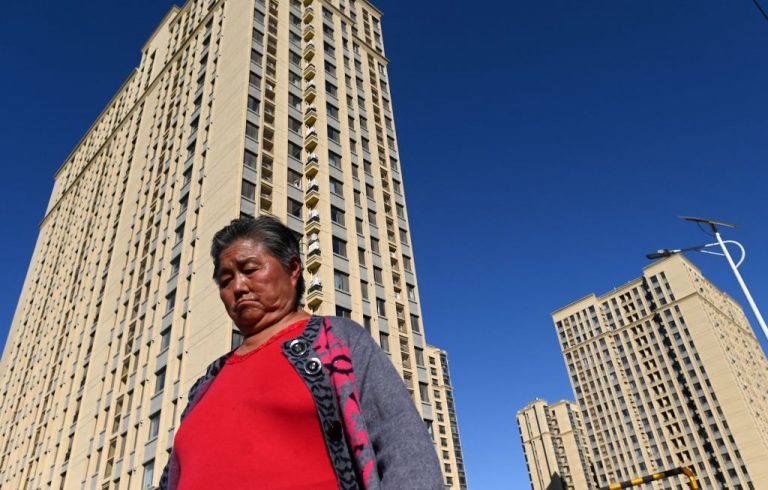Communist China’s property market has been on a downward slide for the past few months, weighed down by developers unable to pay back loans, tight regulatory policies, and lower sales. According to a recent report by Fitch Ratings, up to one-third of the 40 Chinese real estate developers that have been rated by the agency could have a cash shortage if their 2022 sales decline by 30 percent.
If home sales fall by just 15 percent, 13 percent of the developers will still be in a cash squeeze. The longer the financial stress on Chinese developers continues, the greater the risk of losing consumer confidence, Fitch warned in the report.
In November, new home prices had fallen by 0.3 percent compared to the previous month, which was the biggest decline since Feb. 2015. The value of homes fell by 16.31 percent for the month when compared to November last year. This was the fifth straight month of such decline.
The real estate debt crisis in Communist China has been worsened by the fact that some developers are yet to disclose their actual debt figures. Instead, they are publishing lower debt levels. In October, Fitch highlighted the example of developer Fantasia which failed to disclose a private bond.
“Some distressed credits over the past few months have also cast doubt over the transparency of companies’ disclosures and contingent liabilities… The emergence of ‘hidden private debt’ compounds liquidity strains, particularly for lower-rated developers with large upcoming bond maturities,” Fitch’s report said.
Success
You are now signed up for our newsletter
Success
Check your email to complete sign up
One of the main reasons for the debt crisis in China’s real estate sector this year is the liquidity crunch triggered by Beijing’s tightening regulations on the sector.
The regime has marginally eased down funding restrictions in a bid to support the real estate industry. However, according to Wang Menghui, head of the Ministry of Housing and Urban-Rural Development, Beijing still has no interest in reversing its stance.
“Funding access will remain tight during the next 6-12 months due to tightened regulations, and increased risk aversion stemming from China Evergrande’s financial distress and defaults by several other property developers,” rating agency Moody’s reported on Dec. 1.
Only if the government loosens its regulations can funding access for China’s property developers improve, the agency stated. Moody’s predicts home sales in China to contract by five to ten percent by 2022, which is worse than the agency’s previous estimate of a zero to five percent decline.
In the first quarter of 2022, Chinese developers are due to pay $19.8 billion in maturing offshore dollar-denominated bonds. In the second quarter, $18.5 billion worth of bonds will mature.














